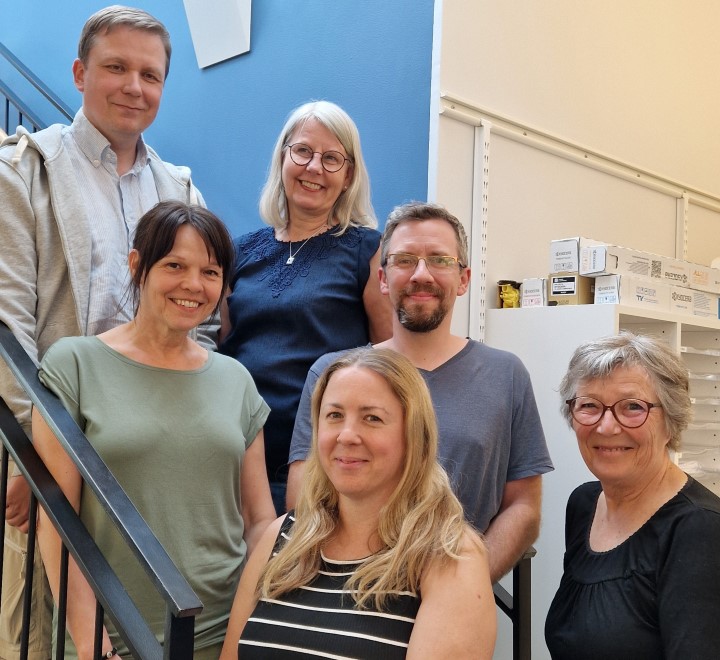Treatment in Upper and lower limb Malformation or Amputation (TUMA)
About this group
Group information
 Our research investigates consequences of the health condition among individuals with limb deficiency or amputation. Our focus is on how treatments such as surgery, training of function and activity performance, treatment of phantom limb pain, prostheses and other assistive technology devices, and environmental adaptations, enable an active and independent life.
Our research investigates consequences of the health condition among individuals with limb deficiency or amputation. Our focus is on how treatments such as surgery, training of function and activity performance, treatment of phantom limb pain, prostheses and other assistive technology devices, and environmental adaptations, enable an active and independent life.
The research also covers prevention of over-use and pain in upper limb amputees, and prevention of amputation in people with diabetes.
In order to measure correctly the effect of treatments, we need instruments of good psychometric quality. Thus, we also develop and validate questionnaires and observational-based tests.
Our research is carried out in collaboration with researchers from Sweden, Europe, North America, Africa and Asia.
Contact person for the research group is also affiliated professor Liselotte Hermansson, who can be contacted at liselotte.hermansson@regionorebrolan.se
Research projects
Active projects
- Assessment of Capacity for Myoelectric Control (ACMC)
- Boosting resource efficiency and circular industry by additive manufacturing (BRECIAM)
- Congenital limb deficiency - early intervention and later outcomes
- Development of the Assisting Hand Assessment-PAD: A Rasch-built performance measure for people with unilateral upper limb prosthesis (P), amputation (A) or reduction deficiency (D)
- Experiences of prosthetic embodiment in people with prosthetic arms
- Lower extremity amputations in Sweden
- National survey of musculoskeletal pain and overuse symptoms in people with dysmelia or acquired arm amputation
- Predictors of prosthetic embodiment in people with prosthetic arms
- Silicone sock as treatment of heel fissures among people with diabetes - a randomized controlled trial
- Validation of the self-report version of IPPA (Individually Prioritized Problem Assessment)
Completed projects
- Assessment of difficulties in everyday life - validation of the Swedish self-administered version of World Health Organization Disability Assessment Schedule 2.0 in a psychiatric population
- Benefit and use of myoelectric prosthesis
- Can prosthetic wrist reduce compensatory movements among upper limb prosthesis users?
- Psychometric properties of two assessment tools for use in children with hemiplegic cerebral palsy - Childrens Hand-use Experience Questionnaire and the Pediatric Evaluation of Disability Inventory
- Risk och protective factors for adherence to wearing therapeutic shoes among people with diabetic foot complications
- Translation and validation of the Swedish version of the World Health Organization - Disability Assessment Schedule (WHODAS) 2.0
- Traumatic limb amputation and depression risk
Research funding bodies
- National Health Care Science Postgraduate School
- University Health Care Research Center, Region Örebro County







